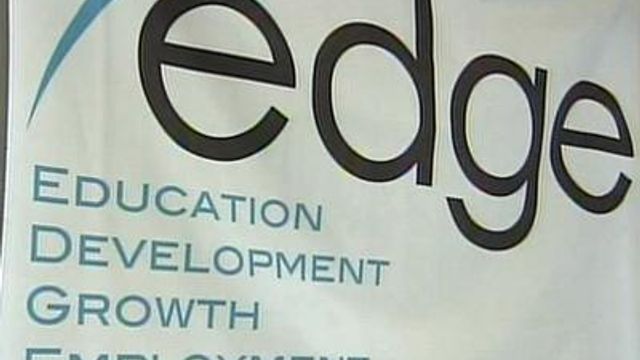Durham's EDGE program slides toward financial uncertainty
The troubled economy is trickling down to all sorts of programs. The latest to take a hit: a Durham program that helps troubled teens get back on an academic track.
Posted — UpdatedFor most of the students in EDGE, the classroom isn't their favorite place.
"I wanted to drop out of school. I hated school. I didn't like school,” student Nataluea Alexander said.
The EDGE program stands for Education, Development, Growth and Employment. It was established in 2007 as a way of giving students who drop out of school a chance to get their General Educational Development (GED) diplomas.
Some students in the program are former dropouts. Others are referred from the juvenile justice or court systems, and some are gang members.
“It doesn't really matter if you are in a gang because all we are doing is trying to improve the quality of their life,” said Fran Fran Alexander, executive director of EDGE training and placement.
Over the past 18 months, 14 EDGE graduates have enrolled in college.
"I tell all of them, college education is houses and cars. And if you want a future, go to college. You are all smart,” Fran Alexander said.
Thirty EDGE students have received their GED diplomas, and eight are in the process of getting them.
"I wasn't thinking about college before I came here. I wasn't even thinking about school, really, before I came here,” student Tyeisha Billings said.
Billings says she was in the with the wrong crowd and had fallen far behind in school. She was a high school freshman when she should have been a junior. With help from EDGE, Billings said, she is planning on going to college and opening her own business someday.
"It really turned me around. I'm a different person than what I was when I was in the public school,” Billings said.
However, the program is in financial trouble.
”Very critical, very very critical,” Fran Alexander said of its finances.
EDGE is funded partially by state grant money, but also relies on private donations.
Fran Alexander says a bad economy has slowed those donations, but she is determined to keep the program afloat.
• Credits
Copyright 2024 by Capitol Broadcasting Company. All rights reserved. This material may not be published, broadcast, rewritten or redistributed.





